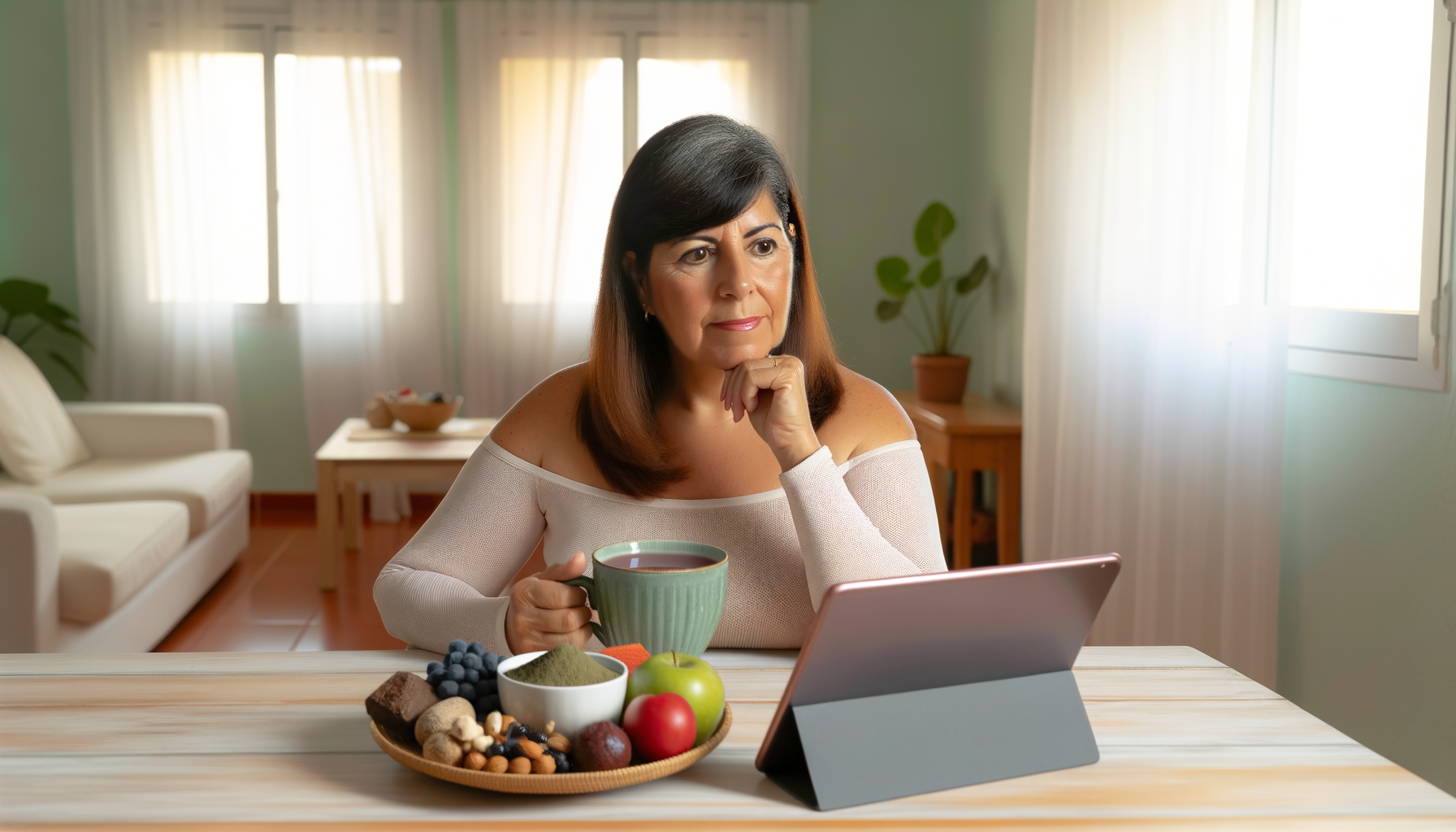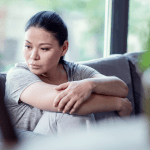Introduction to Menopause and Gastrointestinal Changes
Menopause marks a significant transition in a woman’s life, typically occurring between the ages of 45 and 55. It signifies the end of reproductive capability and is characterized by the cessation of menstruation. The menopausal transition (MT) is accompanied by a range of symptoms, including hot flashes, mood changes, sleep disturbances, and vaginal dryness. These symptoms are largely attributed to the hormonal fluctuations that occur during this period.
Gastrointestinal Symptoms During Menopause
Alongside the more commonly discussed symptoms, many women experience gastrointestinal (GI) changes during menopause. These can include constipation, diarrhea, gastroesophageal reflux, abdominal pain, and bloating. The prevalence of these symptoms suggests a potential link between menopause and GI disturbances, yet research in this area remains limited.
Defining Loose Stools and Differentiating from Diarrhea
Loose stools refer to bowel movements that are softer than normal but not necessarily watery, which is a characteristic of diarrhea. Diarrhea typically involves frequent, liquid bowel movements and may be accompanied by urgency and abdominal cramping. Understanding the distinction between these two conditions is crucial for appropriate management and treatment.
Common Misconceptions About Loose Stools
There are several misconceptions surrounding loose stools during menopause. One common belief is that they are an inevitable part of aging, which is not always the case. Another is that loose stools are solely diet-related, disregarding the potential influence of hormonal changes. It is important to recognize the multifactorial nature of GI symptoms during menopause to address them effectively.
Causes of Loose Stools in Menopause
Hormonal Changes and Digestive Health
During menopause, the body undergoes significant hormonal changes that can impact digestive health. The decline in estrogen and progesterone levels can slow down the digestive system, leading to a longer transit time for food, which may result in constipation followed by loose stools. Additionally, these hormonal fluctuations can affect the muscles in the gastrointestinal tract, altering bowel habits and stool consistency. It’s not uncommon for women to experience a shift in their bowel patterns during this time, with some reporting more frequent episodes of loose stools.
Dietary Factors and Sensitivities
As women transition through menopause, they may become more sensitive to certain foods that can trigger gastrointestinal symptoms, including loose stools. Foods and beverages that may contribute to this condition include high-fat foods, spicy dishes, caffeine, and alcohol. Moreover, some women may develop or notice increased sensitivity to lactose or gluten, which can exacerbate symptoms. Keeping a food diary can be an invaluable tool for identifying specific dietary triggers and managing symptoms effectively.
Stress, Anxiety, and Cortisol Levels
Menopause can be a stressful period, and the body’s response to stress can influence digestive function. Elevated cortisol levels, a hallmark of stress, can lead to gastrointestinal disturbances, including loose stools. The connection between the brain and the gut, often referred to as the gut-brain axis, plays a critical role in how stress and anxiety impact bowel habits. Managing stress through techniques such as mindfulness, yoga, or therapy can help alleviate some of these symptoms.
Pre-existing Gastrointestinal Conditions
Women with pre-existing gastrointestinal conditions such as irritable bowel syndrome (IBS) may find that their symptoms, including loose stools, worsen during menopause. The hormonal changes can exacerbate the condition, leading to increased frequency and severity of symptoms. It’s essential for women with a history of gastrointestinal issues to work closely with their healthcare provider to manage their condition during this transitional phase.
Note: While loose stools can be a common symptom during menopause, it is important to differentiate them from diarrhea and to be aware of other potential underlying causes. Persistent or severe changes in bowel habits should be discussed with a healthcare professional to rule out more serious conditions.
The Impact of Hormonal Fluctuations on Digestion
Estrogen, Progesterone, and Gastrointestinal Motility
The hormones estrogen and progesterone play significant roles in the regulation of gastrointestinal (GI) motility. Estrogen is known to influence the smooth muscle tone of the GI tract, facilitating the movement of food through the intestines. Progesterone, on the other hand, tends to relax these muscles, which can slow down the transit of food, potentially leading to constipation. During menopause, the levels of these hormones fluctuate and eventually decline, which can disrupt the normal motility of the GI tract and contribute to symptoms such as loose stools or constipation.
The Transition from Constipation to Loose Stools
As women approach menopause, they may experience a shift in their bowel habits. The hormonal changes can cause a transition from constipation, often associated with higher levels of progesterone, to loose stools, which may occur due to a relative increase in estrogen or a decrease in progesterone. This transition is not only uncomfortable but can also be unpredictable, making it difficult for women to manage their daily activities and maintain their quality of life.
The Role of Cortisol in Stress-Induced Symptoms
Cortisol, the body’s primary stress hormone, can also impact GI function. High levels of cortisol, often a result of stress, anxiety, or other emotional factors, can lead to increased gut motility and secretion, resulting in loose stools. During menopause, the stress of experiencing various physical and emotional changes can elevate cortisol levels, exacerbating GI symptoms. It is important for women to recognize the impact of stress on their digestive health and seek appropriate stress management techniques to alleviate these symptoms.
In conclusion, the hormonal fluctuations that occur during menopause can significantly affect digestion, leading to a range of symptoms including changes in stool consistency. Understanding the roles of estrogen, progesterone, and cortisol in regulating GI motility can help women and healthcare providers develop strategies to manage these changes effectively.
Menopause can be a stressful time, but managing stress is key to reducing symptoms like hot flashes and mood swings. Techniques such as deep breathing exercises, progressive muscle relaxation, and mindfulness meditation can be effective. Cognitive-behavioral therapy (CBT) has also been shown to improve psychological well-being. Engaging in hobbies, maintaining social connections, and seeking support from peers or professionals can further aid in managing stress during menopause.
By the way, something for you, a little gift!!!
I am just in the middle of publishing my book. It’s about How women can balance their hormones. One part is about food and diet, of course.
Follow this link and enter your email.
I will send you this part of the book for free once the book is published. It has many concrete, practical tips and recipes and will help you feel better during menopause or times of Big hormonal fluctuations.
Annette, Damiva Lead for Health & Wellness

Natural Management of Loose Stools During Menopause
Dietary Adjustments and Elimination Diets
One of the first steps in managing loose stools during menopause is to assess and adjust your diet. Foods that are high in fat, spicy, or contain artificial sweeteners may exacerbate symptoms. An elimination diet can be a useful tool to identify specific food sensitivities. By removing potential trigger foods for a period and then reintroducing them one at a time, you can pinpoint which foods may be causing digestive distress and make informed dietary choices to minimize loose stools.
The Role of Probiotics in Gut Health
Probiotics, the beneficial bacteria that inhabit our gut, play a crucial role in maintaining digestive health. They can help restore the natural balance of gut flora, which may be disrupted during menopause. Including probiotic-rich foods like yogurt, kefir, and fermented vegetables in your diet, or taking a high-quality probiotic supplement, can support gut health and potentially reduce the frequency of loose stools.
Herbal Remedies and Supplements
Certain herbal remedies and supplements may offer relief from loose stools. For instance, berberine, a compound found in several plants, has been shown to help manage diarrhea and improve intestinal health. Similarly, bentonite clay has been used traditionally to alleviate digestive issues, including loose stools, by binding to toxins and helping to remove them from the body. Always consult with a healthcare professional before starting any new supplement regimen.
Increasing Dietary Fiber Intake
Increasing your intake of dietary fiber can help form bulkier, more solid stools. Foods high in soluble fiber, such as oats, apples, and flaxseeds, can be particularly beneficial. However, it’s important to increase fiber intake gradually to avoid gas and bloating. Aim for the recommended daily intake of fiber, which is about 25 grams for women, while ensuring you drink plenty of water to aid the fiber’s beneficial effects on digestion.
By taking a natural and holistic approach to managing loose stools during menopause, you can reduce discomfort and maintain a healthier digestive system. Dietary changes, probiotics, herbal remedies, and fiber can all play a part in this process. However, if symptoms persist or worsen, it’s important to seek medical attention to rule out any underlying conditions.

Popular Read
When to Seek Medical Attention
Identifying Serious Symptoms
While menopause can bring about various gastrointestinal changes, including loose stools, it is essential to recognize when these symptoms may indicate a more serious underlying condition. Red flag symptoms that warrant immediate medical consultation include:
- Persistent abdominal pain or discomfort
- Bloody stools or dark, tarry stools
- Unintentional weight loss
- Severe dehydration accompanied by dizziness or confusion
- Chronic or severe diarrhea
- Signs of infection such as fever or chills
These symptoms could be indicative of conditions such as inflammatory bowel disease, colorectal cancer, or infections that require prompt medical intervention.
Chronic Loose Stools and Potential Complications
Occasional loose stools during menopause are generally not a cause for concern. However, if loose stools become chronic, they can lead to complications such as dehydration, electrolyte imbalances, and nutrient deficiencies. Chronic loose stools can also exacerbate pre-existing conditions like irritable bowel syndrome (IBS) or contribute to the development of hemorrhoids due to frequent bowel movements. It is crucial to monitor the frequency and duration of loose stools and seek medical advice if they persist for more than a few days.
The Importance of Professional Diagnosis
Self-diagnosis and treatment can sometimes mask the symptoms of more serious conditions. Therefore, obtaining a professional diagnosis is vital to ensure appropriate treatment. A healthcare provider can perform a thorough evaluation, which may include a physical examination, blood tests, stool tests, and imaging studies to determine the cause of loose stools. In some cases, a referral to a gastroenterologist for further evaluation, including a colonoscopy, may be necessary.
It is also important to discuss any use of hormone replacement therapy (HRT) with your doctor, as it can affect gastrointestinal symptoms. A tailored approach to managing menopause-related bowel symptoms, including loose stools, often involves a combination of dietary adjustments, stress management, and medical treatments, depending on the individual’s health status and the underlying cause of the symptoms.
By being vigilant and proactive about gastrointestinal changes during menopause, women can ensure they receive the care needed to maintain their health and quality of life.
Preventive Measures and Lifestyle Modifications
Stress Management Techniques
Stress can exacerbate gastrointestinal symptoms, including loose stools, during menopause. Managing stress is therefore crucial. Techniques such as mindfulness meditation, yoga, and deep-breathing exercises can help regulate the body’s stress response. Additionally, cognitive-behavioral therapy (CBT) can be effective in altering negative thought patterns that contribute to stress.
Regular Physical Activity and Digestive Health
Engaging in regular physical activity is beneficial for overall digestive health. Exercise can help reduce the incidence of loose stools by strengthening the muscles of the digestive tract, improving bowel movements. Aim for at least 150 minutes of moderate-intensity aerobic activity per week, complemented by muscle-strengthening activities on two or more days per week.
Hydration and Its Role in Preventing Loose Stools
Proper hydration is essential for maintaining healthy bowel movements. Water helps to soften stools and supports regular bowel function. Women going through menopause should aim to drink at least eight 8-ounce glasses of water per day, although individual needs may vary. Limiting diuretics like caffeine and alcohol can also help maintain hydration levels.
Mindful Eating Habits
Adopting mindful eating habits can prevent loose stools by improving digestion and reducing stress. This includes eating slowly, chewing food thoroughly, and avoiding overeating. Being mindful of food choices is also important; incorporating a diet rich in fruits, vegetables, lean proteins, and whole grains can promote digestive health. Additionally, identifying and avoiding potential food triggers, such as spicy or high-fat foods, may help prevent loose stools.
In conclusion, by implementing stress management techniques, engaging in regular physical activity, staying hydrated, and practicing mindful eating, women can mitigate some of the gastrointestinal changes that may occur during menopause, including loose stools. These lifestyle modifications not only improve digestive health but also enhance overall well-being during this transitional phase of life.

Conclusion: Navigating Menopause with Confidence
Summarizing Key Points on Loose Stools and Menopause
Throughout the menopausal transition, many women experience a variety of gastrointestinal changes, including the occurrence of loose stools. This symptom can be attributed to hormonal fluctuations, particularly the decline in estrogen and progesterone levels, which can significantly impact digestive health. Dietary factors, stress, and pre-existing gastrointestinal conditions also play a role in the manifestation of loose stools during menopause. Understanding the impact of hormonal changes on digestion is crucial, as it can lead to a transition from constipation to loose stools, with cortisol playing a significant role in stress-induced symptoms.
Empowering Women Through Education and Self-Care
Education is a powerful tool for empowering women to manage menopause-related symptoms effectively. By understanding the causes and effects of loose stools during menopause, women can take proactive steps in their self-care regimen. Dietary adjustments, including the incorporation of probiotics and fiber, can promote gut health. Herbal remedies and supplements may also provide relief. It is essential for women to be aware of when to seek medical attention, as chronic loose stools can lead to complications that require professional diagnosis and treatment.
Encouraging Further Research and Discussion
While significant strides have been made in understanding the relationship between menopause and gastrointestinal symptoms, further research is necessary. Continued exploration of the hormonal influences on digestion and the effectiveness of natural management strategies will enhance our knowledge base. Encouraging open discussions about menopause and its symptoms can also help to destigmatize the topic, leading to better support networks and resources for women undergoing this natural life transition.
In conclusion, navigating menopause with confidence is achievable through a combination of education, self-care, and support. By summarizing the key points on loose stools and menopause, empowering women through education, and encouraging further research and discussion, we can help women manage their symptoms effectively and maintain their quality of life during this significant life stage.










